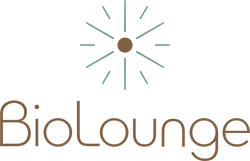Did you know your biological age might be very different from the number of candles on your last birthday cake? While your chronological age simply counts the years since you were born, your biological age reflects how well your body is actually functioning.
In other words, biological age reflects how well (or poorly) your cells, tissues, and systems are functioning compared to the average for your chronological age. It’s the measure that truly predicts your risk for disease, cognitive decline, and mortality.
The good news? We now have the tools to measure and track your true biological age—giving you the power to change it.
The science of measuring aging
Biological age can be measured using DNA methylation “epigenetic clocks.” These tests assess chemical tags on your DNA that influence how your genes are expressed. They are one of the most exciting breakthroughs in longevity science because they allow us to measure aging in real time and see how specific interventions are impacting your body at the cellular level. The TruAge test we use at BioLounge not only measures biological age but also your pace of aging—how fast you’re currently aging compared to the average.
This means we can see not just where you are, but whether your current lifestyle is speeding you up or slowing you down.
How nutrition and lifestyle can turn back the clock
Kara Fitzgerald, ND, and her research team demonstrated that targeted lifestyle and nutrition can significantly reduce biological age in a short period of time. In her 2021 clinical trial, participants followed an 8-week program focused on:
- A plant-rich diet high in methylation-supportive nutrients (leafy greens, cruciferous vegetables, beets, eggs, seeds)
- Regular exercise
- Daily relaxation or breathing practices
- Adequate sleep
- Specific supplements (a probiotic and a phytonutrient blends)
The result: participants reduced their biological age by an average of over 3 years compared to controls, despite being only 8 weeks apart chronologically. This was one of the first human studies to show rapid age reversal using non-pharmaceutical interventions.
Our approach at BioLounge
At BioLounge, we use many of the core principles from Dr. Fitzgerald’s study, but we personalize them completely to you by leveraging your unique lab results, genetics, and health history to create a plan that can produce even more powerful results. By targeting the factors most relevant to your biology, we can accelerate and sustain the shift toward a younger biological age.
Tracking your progress
We use the TruAge by TruDiagnostics - an epigenetic age test to measure both your biological age and pace of aging before and after our interventions. This allows us to track exactly how your nutrition, supplements, and lifestyle changes are influencing your DNA methylation patterns — and to see proof that your efforts are making you biologically younger and slowing the rate at which you age.
If you are ready to find out your true age and take control of how you age, give us a call to schedule your TruAge test and personalized longevity plan.
References
- Fitzgerald KN, et al. Potential reversal of epigenetic age using a diet and lifestyle intervention: a pilot randomized clinical trial. Aging (Albany NY). 2021;13(7):9419-9432. doi:10.18632/aging.202913
- Levine ME, et al. An epigenetic biomarker of aging for lifespan and healthspan. Aging (Albany NY). 2018;10(4):573-591. doi:10.18632/aging.101414
- Belsky DW, et al. Quantification of biological aging in young adults. Proc Natl Acad Sci U S A. 2015;112(30):E4104-E4110. doi:10.1073/pnas.1506264112
- Belsky DW, et al. DunedinPACE, a DNA methylation biomarker of the pace of aging. eLife. 2022;11:e73420. doi:10.7554/eLife.73420

